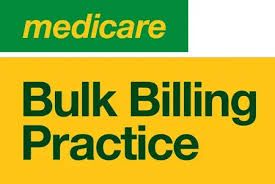TAGLINE HERE
Aboriginal Health
What are Indigenous Australians?
Indigenous Australians are the first inhabitants of the Australian continent and its nearby islands. They are usually divided into two distinct and diverse groups based on their cultural, linguistic, and genetic heritage:
- Aboriginal Australians: This is the group that most people are familiar with when referring to Indigenous Australians. According to archaeological and anthropological evidence, they have been in Australia for at least 65,000 years. Aboriginal Australians are diverse, with over 250 language groups recorded during European contact. Their cultures, languages, and traditions vary widely across different regions of Australia.
- Torres Strait Islanders are the indigenous people of the Torres Strait Islands, between the northern tip of Queensland in Australia and Papua New Guinea. They have a distinct culture and history that differs from that of the Aboriginal peoples of mainland Australia. The Torres Strait Islanders are a maritime people with their languages and traditions.
Today, many Indigenous Australians actively work to preserve and revitalise their languages, cultures, and traditions while confronting and addressing the social and economic challenges their communities face. They have made significant contributions to Australian society in various fields, including art, music, politics, and sports.
What is Aboriginal Health?
Aboriginal Health refers to a holistic approach to healthcare that goes beyond treating physical symptoms. It recognises that health for Aboriginal and Torres Strait Islander peoples includes:
- Physical health: Preventing and treating illnesses like diabetes, heart disease, and infections.
- Mental health: Supporting emotional wellbeing, identity, and resilience.
- Spiritual and cultural wellbeing: Honouring cultural practices, traditions, and beliefs.
- Connection to Country: Recognising the role of land, family, and community in healing.
- Social determinants of health: Addressing housing, education, employment, and access to services.
Health for Aboriginal peoples is about the well-being of the individual, the family, and the entire community.
Who is Suitable for Aboriginal Health Services?
Aboriginal Health services are designed to support:
- Aboriginal and Torres Strait Islander individuals and families of all ages
- Children and youth needing early health checks, immunisations, or support for developmental milestones
- Elders requiring chronic disease management, aged care, or cultural connection in care
- Expectant mothers needing culturally safe antenatal and postnatal support
- Men and women seeking mental health care, screening, or lifestyle advice
- People with chronic illness or disability requiring tailored, culturally appropriate management
All Aboriginal and Torres Strait Islander peoples, whether living in cities, regional areas, or remote communities, are encouraged to access these services.
Benefits of Aboriginal Health Services
Culturally safe Aboriginal healthcare can lead to improved outcomes and stronger trust in healthcare systems. Benefits include:
- Early detection and prevention of illnesses like diabetes, hypertension, and kidney disease
- Culturally appropriate mental health support, grief counselling, and trauma-informed care
- Chronic disease management that respects cultural practices and family roles
- Health education delivered in ways that are meaningful, respectful, and community-focused
- Better access to care through Aboriginal Health Workers, interpreters, and outreach services
- Greater community engagement in health decision-making and advocacy
Aboriginal Health care is built on respect, listening, and partnership, aiming to empower communities to lead their own health journeys.
Types of Aboriginal Health Services
Aboriginal Health includes a wide range of services, tailored to meet the needs of individuals, families, and communities:
Primary Healthcare Services:
- General practice consultations
- Health checks, immunisations, and screening
- Chronic disease and medication management
Maternal and Child Health:
- Culturally safe antenatal and postnatal care
- Breastfeeding support and parenting advice
- Growth and developmental checks for children
Mental Health and Social Wellbeing:
- Counselling and mental health assessments
- Support for trauma, grief, depression, anxiety, and substance use
- Cultural healing programs, yarning circles, and men’s/women’s groups
Allied Health and Specialist Care:
- Referrals to physiotherapy, podiatry, dietetics, and other services
- Access to visiting specialists through outreach clinics
Health Promotion and Education:
- Community education about nutrition, smoking, alcohol, and sexual health
- School-based programs and outreach for youth and elders
Cultural Support Services:
- Aboriginal Health Workers who provide advocacy, navigation, and cultural safety
- Liaison services in hospitals and clinics
- Inclusion of traditional healing and cultural practices in care plans
Aboriginal Health and Chronic Disease Management
Aboriginal Australians experience higher rates of chronic diseases, such as:
- Diabetes
- Cardiovascular disease
- Chronic kidney disease
- Mental illness
- Respiratory conditions
Culturally responsive chronic disease management is essential. Aboriginal Health services can support patients with education, regular check-ups, medication reviews, and culturally appropriate lifestyle advice. This can reduce complications, hospitalisations, and premature death.
Why Cultural Safety Matters in Aboriginal Health?
Cultural safety goes beyond cultural awareness. It involves:
- Listening without judgment
- Understanding the impact of colonisation and intergenerational trauma
- Empowering clients to lead their own care decisions
- Employing Aboriginal staff and supporting cultural knowledge in all parts of care
When Aboriginal and Torres Strait Islander peoples feel safe, respected, and understood, they are more likely to engage in health care, return for follow-up, and achieve better outcomes.
How to Access Aboriginal Health Services?
Aboriginal and Torres Strait Islander individuals can access care through:
- Aboriginal Community Controlled Health Services (ACCHS)
- General practices offering Aboriginal Health Checks (MBS Item 715)
- Hospitals and outpatient services with Aboriginal liaison teams
- School-based, aged care, or prison-based health programs
- Outreach services in regional and remote communities





